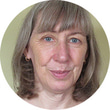- OT
- Professional support
- Optical organisations
- “There have been positive lessons”
Key milestones
“There have been positive lessons”
Ann Blackmore, ECOO secretariat manager, on facilitating a survey of members’ COVID-19 experiences ahead of the organisation’s General Assembly


Ann Blackmore
29 July 2022
1
We did work two years ago and then again last year on what support services we could provide during the pandemic, and as a result have a COVID-19 information hub on our website.
Five facts on the European Council of Optometry and Optics (ECOO)
- ECOO has 23 members countries
- There can be more than one member association per country
- Anything that requires a vote is one vote per country
- UK associations that are members of ECOO are the AOP, FODO, ABDO and the College of Optometrists
- AOP chairman, Dr Julie-Anne Little, is a member of the ECOO executive committee.
2
The survey focused on the experience of our associations, and by extension their members’ experiences, during the pandemic.
I think it’s true for all industries that we can learn to behave and deliver services in different ways
3 We ran the survey in April, about six weeks before our General Assembly (May), and closed it two weeks beforehand.
Some of our 23 member countries are small, and we didn’t get responses from all of them. Malta and Cyprus are both very small in terms of the number of optometrists, but then you have places like the Netherlands, which has a very big, very active member association. They’re very different.
4 With an online survey, you’re never quite sure what response rate you’ll get.
We had 17 responses, which is not bad. It’s always about getting that mix, including qualitative information. I think we gathered useful information.
5 We collected the data and shared our findings in a presentation at our General Assembly, highlighting suggestions and insight into what members said they were doing.
There was room for discussion, largely around whether this reflected people’s experiences, and whether they recognised the findings that had come from it. The overall feeling was positive, both for optical practices, and also the national associations across Europe. The lessons they’ve learnt mean they are now more resilient as organisations, because they’ve had to review what they do, and why they do it, and how.
The lessons they’ve learnt mean they are now more resilient as organisations, because they've had to review what they do, and why they do it, and how
6 The survey was very much a learning piece for us.
How can we better support and help develop an association? The size and state of the optical profession and their national associations differ from country to country. The UK associations are well developed so are less likely to need guidance, whereas Slovenia is more likely to need help, because their association is much smaller and in a much earlier stage of development.7 I wouldn’t say that the survey marks the end of our work on COVID-19.
It did feel, though, like we needed to do something that said, “Let’s move on from it. We might have to live in a different way now, but this is the opportunity to review what’s worked, and what we’re going to do next. Now, we can start to focus on other areas of work. We’ve taken the opportunity to learn."

Comments (0)
You must be logged in to join the discussion. Log in